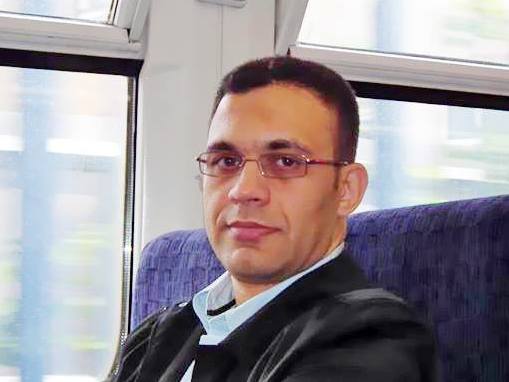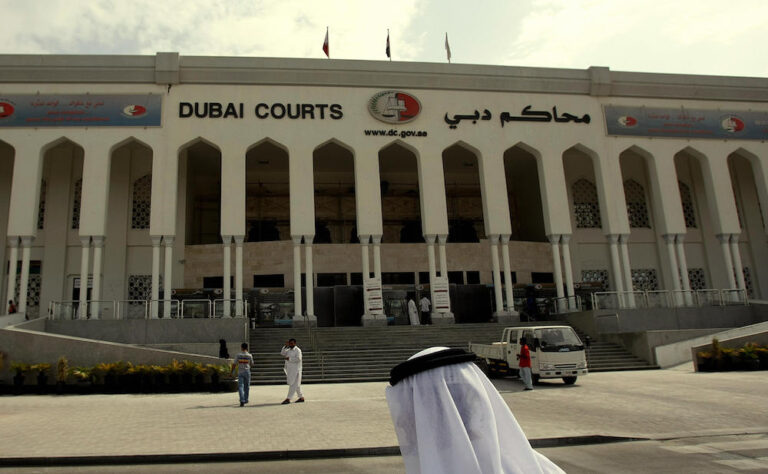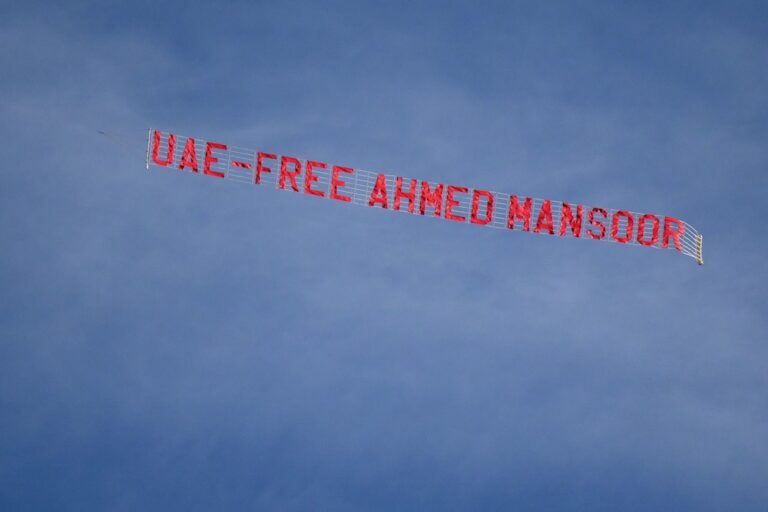Egyptian journalist held incommunicado for a month, while crackdown continues related to the trial of the "UAE 94" in which critics were rounded up and jailed, and websites were banned.
Reporters Without Borders condemns Egyptian journalist Anas Fouda’s detention by the authorities in the United Arab Emirates for the past month. Based for many years in the UAE, Fouda has been held incommunicado ever since his arrest on 3 July 2013.
Security personnel at Dubai international airport told Fouda on 28 June he was banned from leaving the country. In response to a summons, he reported to the state security department on 3 July accompanied by an Egyptian consular official, who left without him.
His relatives have not heard from him since then. Before going to the meeting, Fouda told colleagues he was worried about the outcome.
“We urge the UAE authorities to quickly explain why they arrested Fouda and why they are holding him incommunicado,” Reporters Without Borders said. “If no charges have been brought against him, he must be released unconditionally at once. We hold the state security department, the last place he was seen, responsible for what happens to him.”
After saying nothing for weeks in the hope that he was going to be freed, Fouda’s family have finally gone public about his detention. The responses have included the creation of a Facebook page calling for his release.
A senior editor with the MBC media group, Fouda works with various news media including Al-Arabiya and Al-Aswaq.net and keeps a blog on Egyptian politics.
Freedom of information, collateral damage from persecution of Muslim Brotherhood
Fouda’s detention has come amid a crackdown on Muslim Brotherhood supporters by the UAE authorities.
The “UAE 94” trial ended on 2 July with a total of 68 people getting sentences of up to 15 years in prison on various charges including links to the Muslim Brotherhood, which is banned in the UAE, and wanting to overthrow the government. Most of those convicted are members of Al-Islah (Reform), a local group that shares the ideology of Egypt’s Muslim Brotherhood.
Reporters Without Borders condemned the news blackout about the trial as it was being held. Journalists with foreign news media and observers with human rights organizations were denied access to the courtroom.
Several relatives of the detainees have themselves been arrested for providing information on social networks about the way the trial was held and about the alleged torture of the detainees.
Abdullah Al-Hadidi, who was arrested on 22 March, was sentenced to 10 months in prison on 9 April for tweeting about the trial “in bad faith.” Waleed Al-Shehhi has been detained since 11 May.
Four more were arrested in July for posting information about the UAE 94 detainees on Twitter. They were Hussain Al-Ajlah (on 1 July), Obaid Youssef Al-Zaabi (on 2 July) and Hitham Jassim and Kalifah Rabia (on 25 July).
As well as arrests, the UAE authorities have also resorted to direct censorship of Watan.com, a liberal and independent news portal operated by the newspaper Watan. Its publisher, Nezam Mahdawi, told Reporters Without Borders about the various measures taken to silence the website.
“Wrongly accused of working for the Muslim Brotherhood’s international organization, our website became the target of threats and cyber-attacks by the authorities before being blocked for good,” he said. “In order to bypass the censorship, the site’s director changed the domain, using the name watanserb.com.”
But the persecution continued.
“Hetzner Online AG, the German company that hosts our site, received an email from the UAE’s Telecommunications Regulatory Authority on 31 July ordering it to close our site.”
Reporters Without Borders has a copy of the email. It says: “If you fail or refuse to comply with this website closure order, you will be held legally responsible before the Emirati courts.”
The UAE is ranked 114th out of 179 countries in the 2013 Reporters Without Borders press freedom index and is classified as a country “under surveillance” in the “Enemies of the Internet” list that Reporters Without Borders released on 12 March.



